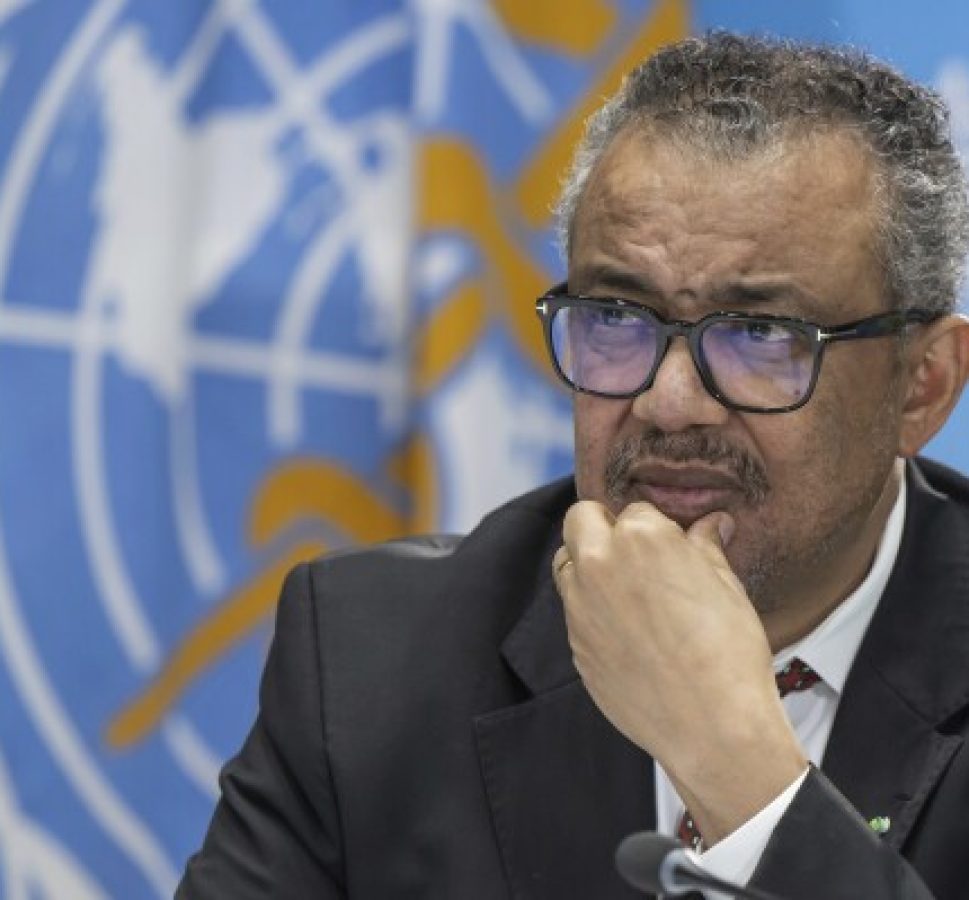
The head of the World Health Organization is urging health officials from various countries to encourage the United States to reconsider President Donald Trump’s decision to withdraw from the U.N. health agency.
Countries raised concerns during a crucial budget meeting with the World Health Organization (WHO) on Wednesday regarding the potential impact of losing its largest donor, as revealed by internal documents obtained by The Associated Press.
For the 2024-2025 period, the United States stands as WHO’s predominant contributor, providing an estimated $988 million, which constitutes approximately 14% of the organization’s total budget of $6.9 billion.
A confidential budget report shared at the meeting indicated that WHO’s health emergencies program is significantly dependent on U.S. funding.
Specifically, the “readiness functions” within WHO’s European office rely over 80% on the $154 million contribution from the U.S.
The report highlighted that U.S. financial support is crucial for many of WHO’s extensive emergency operations, accounting for up to 40% of the funding.
It noted that ongoing responses in regions such as the Middle East, Ukraine, and Sudan are at risk, alongside substantial losses in polio eradication and HIV initiatives.
Additionally, the U.S. finances 95% of WHO’s tuberculosis efforts in Europe and over 60% of TB programs in Africa, the Western Pacific, and at the agency’s headquarters in Geneva, according to the document.
Michael Ryan, the WHO’s deputy director general reminded everyone that the United States government is not simply departing from a building in Geneva or a secretariat there.
It is distancing itself from a community of nations.
Essentially, it is ending a relationship with them and not him, a significant consideration for the 193 member states present at the meeting.
WHO director general Tedros Adhanom Ghebreyesus added, that it remains crucial to invest efforts in facilitating the U.S. return, and he believes each of them could contribute to that endeavor.
Mathew Kavanagh warned of dire consenqunces for WHO if measures were not put in place as soon as possible.
“The money hit will be very substantial. And if the world doesn’t step up and address the money gap that is coming, then the World Health Organisation will be very very badly damaged,” he said.
During a private meeting with diplomats, WHO representatives emphasized that the U.S. would suffer from diminished access to vital information regarding global disease outbreaks.
In a separate private discussion regarding the implications of a U.S. withdrawal last Wednesday, WHO finance director George Kyriacou warned that if the agency continues its current spending trajectory, it would face significant cash flow challenges by the end of the first or second quarter of 2026.
He emphasized that maintaining the current rate of expenditure is not feasible, as per a recording acquired by the AP.
Since the executive order issued by Trump, WHO has sought to reclaim funds from the U.S. for previous expenses, but most of these requests have not been accepted, Kyriacou noted.
Furthermore, the U.S. has yet to fulfill its financial commitments to WHO for 2024, which has contributed to the agency’s budget deficit.
Amid various health emergencies, WHO is actively engaged in efforts to control outbreaks of the Marburg virus in Tanzania, Ebola in Uganda, and mpox in the Congo.
Tedros addressed the three reasons cited by Trump for withdrawing from the agency in the executive order signed on January 20, which marked Trump’s first day back in office.
The president claimed that the WHO mishandled the COVID-19 pandemic that originated in China and failed to implement necessary reforms.
In response, Tedros emphasized that the WHO had informed the global community about the potential risks of the coronavirus as early as January 2020 and has since undertaken numerous reforms, including efforts to broaden its donor base.
He remarked, “Reintegrating the U.S. into the organization will be crucial,” and encouraged attendees to contribute to this effort.
Representatives from various countries, including Bangladesh and France, inquired about the specific strategies the WHO planned to adopt in light of the loss of U.S. funding and which health initiatives might face cuts as a consequence.
The Associated Press obtained a document circulated among some senior WHO officials, which outlined a scenario where each major department could face a 50% reduction by the year’s end.
The WHO refrained from commenting on whether Tedros had privately urged countries to advocate for the agency.
Some experts noted that while the U.S. exit represented a significant challenge, it could also present an opportunity to rethink and enhance global public health initiatives.






